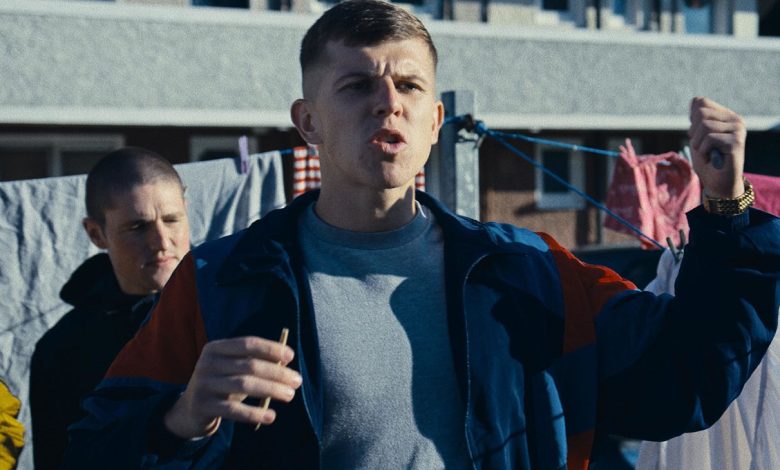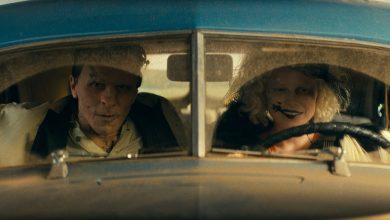From Outlaws to Breakouts: Oldenburg Success Stories

At a time when most fall festivals are chasing premieres, influencers and streaming exclusives, the Oldenburg Film Festival still prides itself on something old-fashioned: discovering and nurturing raw talent.
Quietly defiant and proudly independent, the German festival has built a reputation over three decades as a launchpad for boundary-pushing cinema. Some call it “Europe’s Sundance,” but Oldenburg bears little resemblance to the industry machine that Sundance has become, packed with distribution executives and slumming Hollywood stars. Thirty-one years in, Oldenburg remains an oddball outlier in the festival circuit, with no market, no press junkets, no global corporate sponsorship – its biggest corporate backer is OLB, a local bank.
Festival director Torsten Neumann, who founded the festival in 1994 and remains its guiding force, has kept Oldenburg’s outlaw spirit alive by programming films other festivals deem too raw, too weird or too real. And, every so often, a miracle happens: One of these outlaw movies gets noticed.
It happened back in 2021, when Neumann picked Leberhaken, a low-budget drama from first-time director Torsten Ruether, to open the festival. The film, about an ambitious female boxer trying to convince a washed-up former champ to coach her, was shot with a cast of two (athlete-turned-actress Luise Grossmann as the ambitious pugilist, Hardy Krüger Jr. as the coach) over three nights at a Berlin gym. Financed entirely independently, with no presales, subsidy funding or studio money involved, it was just the kind of project Oldenburg loves.
After the festival premiere, a couple of American producers approached Reuther and pitched him on an English-language remake. “They said: ‘It’s been nearly 20 years since Million Dollar Baby. We want to redo this for the U.S.’,” Reuther recalls.
Reuther quickly reworked his original script, transferring the action from Berlin to New York but keeping Grossmann as the lead. In a casting coup, he landed Mission: Impossible star Ving Rhames in the role of the coach. Adapting his indie run-and-gun instincts for the U.S. market, Reuther shot the film, Uppercut, over nine days.
“When you don’t have as much money, you can’t do as many things, but you can do more creative things — you can find ways of making things work,” Rhames told The Hollywood Reporter. “This movie brought me back to why I got into making films.”
Two years after Leberhaken, Reuther brought Uppercut to Oldenburg for its world premiere. A few months later, Lionsgate’s Grindstone Entertainment picked up all rights in North America, releasing the film theatrically in February.
“How this movie came together feels magical, somehow,” says Reuther. “The whole thing feels like a fairy tale. An Oldenburg fairy tale.”
In 2012, A Coffee in Berlin was Oldenburg’s Cinderella story. The laconic, Jim Jarmusch-esque black-and-white dramedy, from debut director Jan-Ole Gerster, about a character, as Gerster told The Hollywood Reporter at the time — “who’s always searching, not for action, but for meaning” — swept the festival’s awards, winning the top prize from the competition jury and the audience award for best film, as well as the best actor honor for star Tom Schilling. German critics, and audiences, took notice. Riding a wave of Oldenburg-generated hype, A Coffee in Berlin became a sleeper hit, earning more than $2 million at the German box office (several times its estimated $400,000 budget) and sold to Music Box Films in the U.S., where it grossed a respectable $150,000 in limited release. The festival “really gave the film a boost, it brought in the publicity and marketing budget needed to put it over the top,” argues Neumann.
At the 2013 Lolas, Germany’s equivalent of the Oscars, A Coffee in Berlin beat out Cloud Atlas, the $100 million-plus sci-fi epic directed by Tom Tykwer and the Wachowskis, to take best film. Gerster is now a Lola regular. His second feature, Lara, was a best film nominee, as is his latest, Islands, starring Sam Riley.
Nicolai Schumann, who brought his debut feature, The Lonely Musketeer, to the fest last year, calls Oldenburg “a true filmmakers’ festival.” Premiering his closed-room sci-fi thriller at the fest “brought us our first international reviews and market visibility, and also opened the doors to prestigious festivals such as Beijing IFF, Fantaspoa, and the Max Ophüls Preis,” says Schumann. A stack of festival awards followed, as did a spot on Sight & Sound’s list of the best films of 2024.
The “Oldenburg effect” extends far beyond Germany. Cult Spanish director F. Javier Gutiérrez — known for Before the Fall and Rings — chose the Oldenburg Film Festival for the world premiere of La Espera (The Wait), his first feature in six years. The sun-drenched gothic folk horror, about an Andalusian groundskeeper unraveling after a tragedy, blends genre and arthouse, making it a natural fit for Oldenburg’s daring lineup.
“I chose Oldenburg as a statement,” explains Gutiérrez. “It was the ideal home for a film that fuses horror and existential themes with a study of human nature.” The film’s premiere there led to a North American debut at Fantastic Fest and a U.S. all-platform release via Film Movement. “Oldenburg
was deeply personal and filmmaker-focused,” Gutiérrez adds. “The response sparked early critical buzz that launched The Wait on a successful international run.”
In 2022, the festival’s Audacity Award — which honors the boldest film in the lineup — went to Aberrance, a Mongolian-language slasher about a couple who are tormented by their eerie neighbor. With its psychedelic visuals and disturbing soundscape, the debut feature from Baatar Batsukh drew comparisons to Mandy and caught the eye of SXSW programmers. There, Batsukh inked a world sales deal with Raven Banner, leading to a U.S. theatrical release through Freestyle Releasing.
The Black Guelph (2022) was another Oldenburg outlaw made good. The Irish crime thriller, from actor-turned-director John Connors, was made entirely outside the system, with private funding and an “embrace the chaos” approach, Connors told THR at the time. “We shot 145 pages in 21 days, with 156 setups. It was crazy,” Connors recalled. “Our production people were shitting themselves, the business people, the insurance and stuff, were panicking.”
Connors, drawing equally from Ken Loach social dramas and the early films of Martin Scorsese, tells a bleak tale of the multigenerational trauma and abuse suffered by Connors’ community, the Irish Travellers, or Mincéirs, at the hands of both the Catholic Church and the Irish state.
Oldenburg’s jury loved it. The Black Guelph captured the German Independence Award for best film and best acting honors for Graham Earley, who stars as Kanto, a small-time drug dealer caught short by a visit from his long-absent father, an abuse survivor. That success led to a deal with film packaging and financing platform Slated.com, which picked up worldwide rights, outside Ireland, to the film, and partnered with Entertainment Squad on a U.S. release.
“Oldenburg gave The Black Guelph its wings,” says Connors.
These success stories aren’t about striking it rich — they’re about survival, both artistic and personal. In an industry increasingly dominated by IP-driven franchises and algorithm-approved content,
the Oldenburg Film Festival continues to carve out space for the kind of fiercely personal, formally daring cinema that once defined independent film but has virtually vanished from theaters and the mainstream festival circuit.
“It’s the purest filmmaker’s festival in the world, no ego, just cinema,” says Connors. “The audiences are razor-sharp, the programming is fearless, and as a filmmaker, you’re treated with rare respect. I’ve been around the world with films, but nothing touches Oldenburg. It’s where real cinema lives.”
Source: Hollywoodreporter
HiCelebNews online magazine publishes interesting content every day in the celebrity section of the entertainment category. Follow us to read the latest news.
Related Posts
- Today's Dylan Dreyer's new post involving husband Brian Fichera sparks reaction
- Inside the Fox Upfront: Rupert Murdoch, David Letterman and an Unfortunate Tom Brady Pass
- Prime Video Orders ‘Barbershop’ Series Starring Jermaine Fowler
- Al Roker shares details of 'weird' weekend as he reflects on change in family life
- Siegfried & Roy Series, Starring Jude Law and Andrew Garfield, Picked Up at Apple





